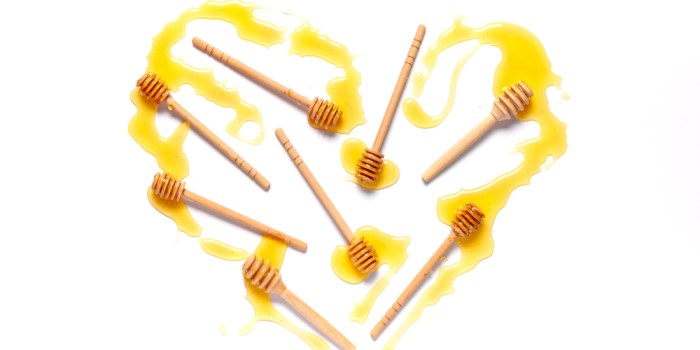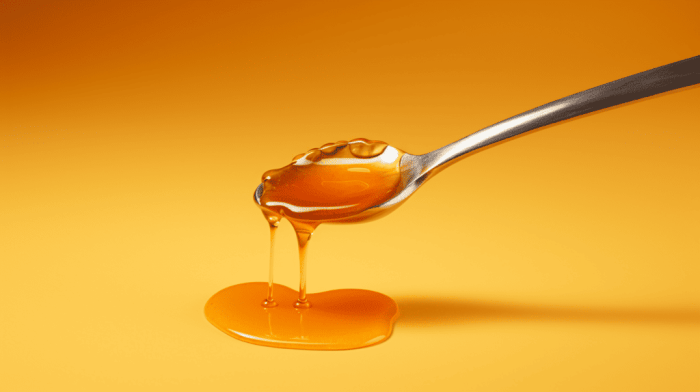Does using a metal spoon kill the enzymes in honey? This question has been debated for centuries, with no clear consensus. Some believe that the metal spoon reacts with the enzymes in honey, destroying them and reducing the honey’s nutritional value.
Others argue that the metal spoon has no effect on the enzymes, and that honey retains its nutritional value regardless of the utensil used to serve it.
In this article, we will explore the science behind this question and examine the evidence for and against the claim that metal spoons kill the enzymes in honey.
Enzymes in Honey

Honey is a natural sweetener produced by bees from the nectar of flowers. It is composed of a variety of sugars, water, and enzymes. Enzymes are proteins that act as catalysts, speeding up chemical reactions without being consumed themselves. The enzymes in honey play a crucial role in its composition and properties.
There are several types of enzymes found in honey, each with its specific function. One important enzyme is glucose oxidase, which converts glucose into gluconic acid and hydrogen peroxide. This process creates a slightly acidic environment in honey, which helps to inhibit the growth of bacteria.
Other enzymes in honey include invertase, which breaks down sucrose into fructose and glucose, and amylase, which breaks down complex carbohydrates into simpler sugars.
Properties of Metal Spoons
Metal spoons are commonly used to handle honey. However, the material properties of metal spoons can affect honey’s temperature and potentially its enzymes.
Metals are good conductors of heat, which means they can transfer heat quickly. When a metal spoon is placed in hot honey, the spoon will rapidly absorb heat from the honey, causing the honey in contact with the spoon to heat up.
This can potentially damage the enzymes in honey, as they are sensitive to heat.
Interaction of Metal Spoons with Honey: Does Using A Metal Spoon Kill The Enzymes In Honey

Metal spoons can come into contact with honey in several ways. The most common way is when honey is stirred or scooped with a metal spoon. This can cause the metal spoon to heat up the honey, as described above.
Another way that metal spoons can interact with honey is through galvanic corrosion. This occurs when two dissimilar metals are in contact with each other in the presence of an electrolyte, such as honey. In this case, the metal spoon and the honey can act as the two dissimilar metals, and the honey can act as the electrolyte.
Galvanic corrosion can lead to the formation of metal ions, which can potentially react with the enzymes in honey and damage them.
Alternative Utensils for Honey

There are several alternative utensils that can be used to handle honey without potentially damaging its enzymes. These include:
- Wooden spoons: Wooden spoons are good insulators, so they do not conduct heat as well as metal spoons. This means that they will not heat up the honey as quickly, reducing the risk of damaging the enzymes.
- Plastic spoons: Plastic spoons are also good insulators, so they will not heat up the honey as quickly as metal spoons. However, some plastics can leach chemicals into the honey, so it is important to choose a food-grade plastic that is safe for use with honey.
- Glass spoons: Glass spoons are non-reactive, so they will not interact with the honey in any way. However, glass spoons can be fragile, so they must be handled with care.
Traditional Beliefs and Practices
There are several traditional beliefs and practices surrounding the use of metal spoons with honey. Some people believe that using a metal spoon to stir honey will cause the honey to crystallize. Others believe that using a metal spoon to scoop honey will make the honey less sweet.
However, there is no scientific evidence to support these beliefs.
In some cultures, it is considered taboo to use a metal spoon to stir honey. This is because honey is often seen as a sacred food, and metal is seen as a conductor of negative energy. As a result, some people believe that using a metal spoon to stir honey will contaminate the honey and make it unfit for consumption.
Q&A
Does using a metal spoon kill the enzymes in honey?
No, using a metal spoon does not kill the enzymes in honey.
What are the benefits of using a metal spoon to serve honey?
Metal spoons are durable and easy to clean, and they do not absorb honey like wooden spoons.
What are the disadvantages of using a metal spoon to serve honey?
Metal spoons can conduct heat, which can warm the honey and reduce its nutritional value.